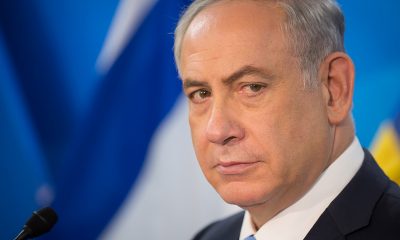Commentary
The war in Gaza impacts all of us and democracy too
ICJ case accuses Israel of committing genocide against Palestinians in enclave.
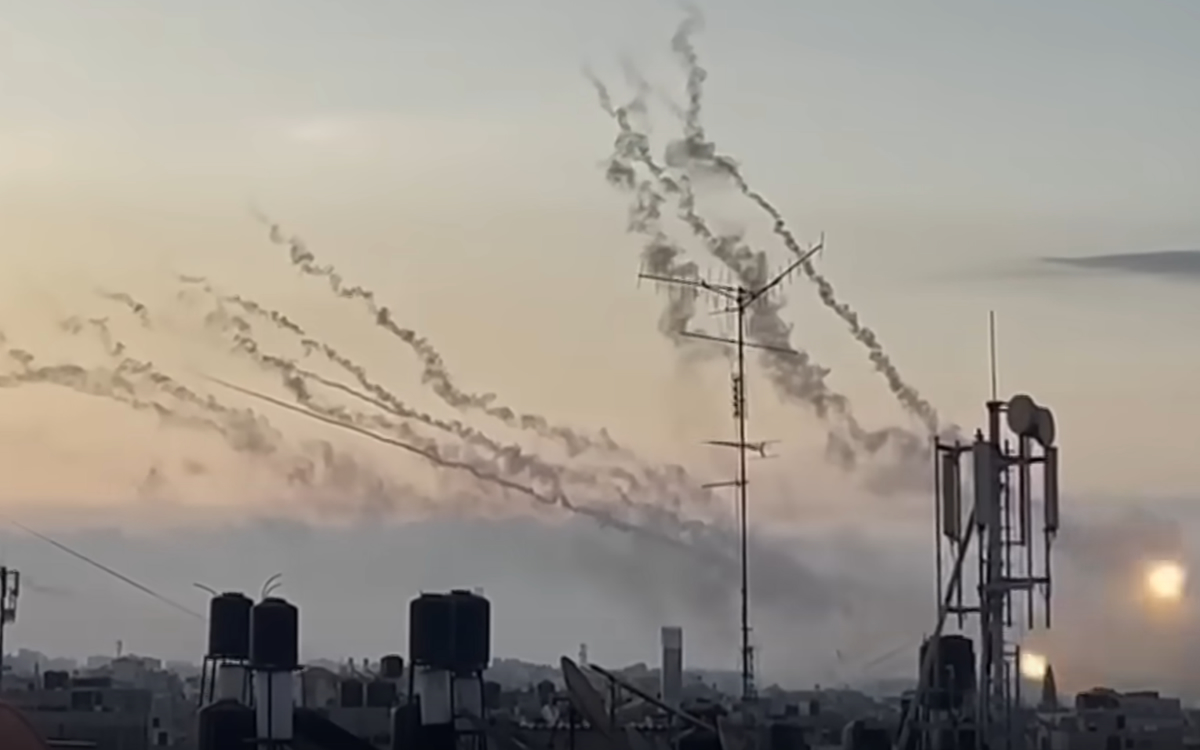
BY JULIE DORF | As a leader in the LGBTQI+ movement and co-chair of the U.S.-based foreign policy organization the Council for Global Equality (CGE), I am calling on my colleagues in the progressive foreign policy community to urgently discuss alternative policy solutions to our government’s support of the deadly war in Gaza and collectively begin demanding solutions that respect the dignity, rights and security for all.
The Council for Global Equality (CGE) works at the intersection of international human rights, U.S. foreign policy and LGBTQI+ communities. We primarily focus on influencing the U.S. government’s policies, programs and foreign assistance to do more good in the world, recognizing that our democracy typically only does the right thing when its citizens demand it — whether through elections or ongoing civic engagement by organizations such as ours. We also recognize that, deservedly or not, the United States wields outsized power in the world; as responsible citizens of this mighty country, it is therefore incumbent on us to actively engage and try to direct its power towards good. Our organizational principles include key tenets such as “freedoms abroad and freedoms at home are linked,” “democracy can only be rooted in secular, inclusive values,” “equal treatment is at the heart of human rights” and “one population’s rights cannot transcend those of another.” The full statement of principles is on our website.
When Hamas launched its terrifying attacks in southern Israel on Oct. 7, followed by Israel’s revengeful response in Gaza, I thought at first that this was not a CGE issue. As a progressive Jew, I was mostly consumed by my own relationship with the ongoing occupation and I feared for my friends in the region. I was horrified and heartsick, glued to Al Jazeera and other news sources. But I was not at all surprised by the attack, except perhaps that it had taken this long for a major uprising by Palestinians. I reached out to activists, friends and family in Israel, Palestine, Lebanon and Egypt. I felt no contradiction being equally upset by the loss of lives on all sides and holding multiple truths at once. Yes, Hamas is a terrorist organization that brutally murdered my people. Yes, Israel has been occupying, persecuting, and actively undermining a Palestinian state for its entire existence. And yes, the government of the United States and its Jewish community have both been enabling this horrible injustice for as long as I can remember. This crisis was just more of the same but on a much, much more painful scale.
My position on Palestine and Israel
I grew up in a staunchly Zionist environment, visited the region multiple times (Israel and the West Bank and Gaza,) and evolved through my human rights career into a proud Jewish anti-Zionist. I believe in the land of Israel being a vital, safe and sacred homeland for Jews and Muslims, as well as for Christians, Druze, Armenians, Samaritans and others.
I do not, however, believe in a Jewish supremacist state, which is the way that Israel’s current policies have been constructed, believing that only by having a majority of Jews in the country of Israel can it be a secure Jewish “homeland.” I believe it can and must be a secure homeland for different religions simultaneously. Indeed, if you’ve ever visited Jerusalem, you know it already is a homeland for Jews, Christians, Muslims and Armenians (albeit not safe.) Yes, Netanyahu is perhaps the most far-right authoritarian leader we’ve seen in Israel. But long-time policies from urban development, road construction and water to the separation wall and vast numbers of political prisoners, and other Israeli government policies have been constructed to maintain the supreme rights of Jews over Palestinians. These policies that are intended to maintain inequality by ethnicity are simply inherently incompatible with a genuine democracy. At this moment in the world, when democracy needs to be actively defended in so many countries, an exception clause for Israel is both indefensible and counterproductive.
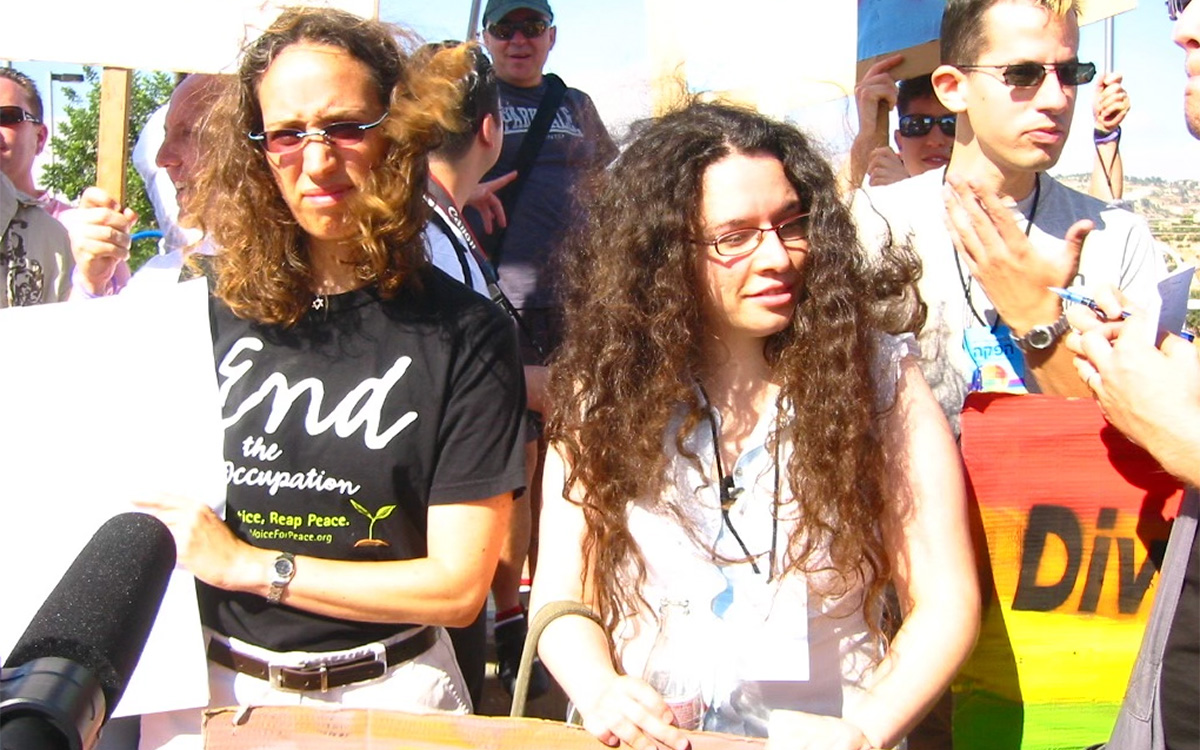
My political positions on Israel and Palestine have stirred up great pain and conflict in my family and community. But I have been committed to talking to my own people — in this case, American Jews — about these issues because that is where I can have the most influence to make change, however small that may be. Many progressive Jews — and particularly younger generations — share my beliefs but are afraid of being ostracized from their Jewish communities or families or being labeled a “self-hating Jew.” I know that I am a proud Jew.
Antisemitism and anti-Zionism
I am also no stranger to antisemitism — even working in the LGBTQI+ global movement, I have experienced my share of antisemitism. It mostly takes the form of microaggressions, such as comments about “your banker friends in New York” or “I won’t succumb to your Jewish guilt moves.” Then there was the moment when a presenter at a queer conference on closing civic space in Poland used a political cartoon from a local newspaper that had a picture of an Orthodox Jew with a huge nose, wearing a Star of David that said “NGO” on it — but didn’t recognize that NGO was overlaid on a profoundly antisemitic image. Or the time when someone posted a conspiracy theory full of lies that “co-religionist George Soros” was somehow connected West Bank settlement building on a large global queer listserv, and the moderator of the list told me that my concerns were unfounded and that “the post was not antisemitic.” And I’ll definitely never forget when an activist in Malaysia who had never met a Jew before asked to feel my head for my horns. At least they asked for consent!
Today’s genuine rise in antisemitism around the world is more overt and scary. I’m used to armed security guards at the entrances to Jewish institutions such as our schools, museums and synagogues to guard against the occasional violent act of antisemites. But this increased level of hate speech, online antisemitism, Nazis in public and murder threats are understandably terrifying my community. This is precisely why the distinction between this very real rise in antisemitic violence and anti-Zionist expression is critical to distinguish.
It is dangerous for Jews and others to conflate antisemitism with anti-Zionism because that conflation misdirects attention from genuine antisemitic violent threats and increases polarization in a year when our unity to protect democracy is more important than ever. Further, it is terrible for the freedom of thought and speech, undermining legitimate calls for justice for Palestinians and silencing people from expressing their true thoughts and reactions. All these things are harming U.S. foreign policy and making U.S. citizens less safe.
We can agree to disagree about the connotations of “from the river to the sea” or the word “intifada,” but it is not inherently antisemitic to wish for equality in that location or to desire a one-state solution to the conflict between the state of Israel and the stateless citizens of Palestine or to wish to organize peaceful resistance to oppression (such as the boycott, divestment and sanctions movement.) This is legitimate political discourse, essential to finding a peaceful solution to this ongoing conflict, whether that be a one-state, two-state, confederated or some other solution we haven’t yet imagined.
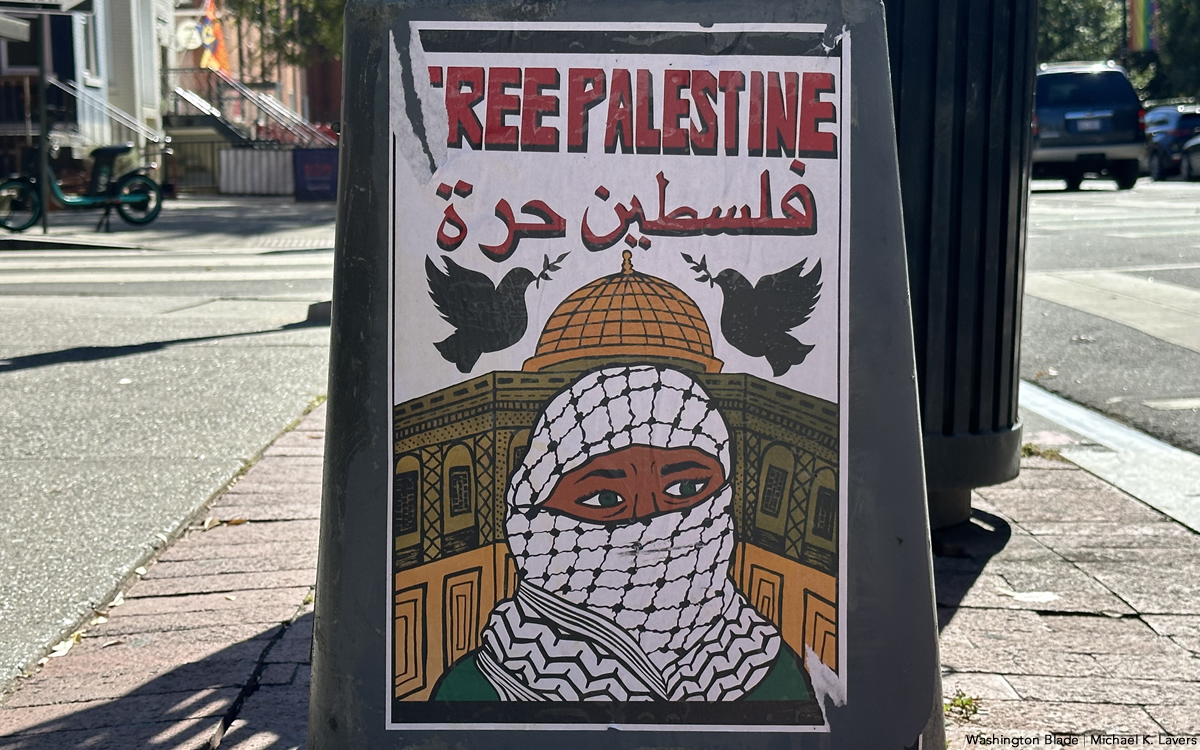
Further complicating matters, progressives tend to minimize antisemitism because of Ashkenazi white skin privilege and class privilege, whether real or imagined. Yet Eastern European Jews weren’t considered “white” for many decades, Sephardic Jews are still not considered “white,” and there is increasing visibility of Jews of color. Regardless of the color of our skin, we’ve not been part of any dominant culture for most of our existence as a people — until the creation of the Israeli state. But in the current leftist paradigm of “settler colonialism” as it applies to the State of Israel (which is, in fact, what the early founders of Israel called themselves), often the role of historical and current antisemitism is either dismissed or ignored. This is problematic and limits solidarity. It adds to the lopsided empathy that occurs in both directions and limits civil discourse and healing.
There is no doubt that antisemitism over time, and particularly the Holocaust, played a critical role in the creation of the state of Israel, as well as in the historical trauma and epigenetic fears that live inside so many of us Jews. That trauma was further inflamed by Hamas’ attack on Oct. 7, just as the trauma of the Nakba was reignited for Gazans when Israel’s counter-attacks began and 90 percent of Gazans were forced to leave their homes, regularly going without food. It might seem obvious that this sense of collective victimhood does not give license to victimize others, but it certainly creates a major blind spot in Jewish identity. It is overdue for Jews around the world — and especially in Israel — to update our story and live up to our stated values as a people committed to “Tikkun Olam,” or to repair the world. As painful as it is, we must take a hard look at the missteps in the history of Israel and rectify them urgently. We must face the current crisis and rise in antisemitism with the clarity that anti-Zionism is not synonymous with antisemitism. We must also be able to sit with the discomfort or sense of threat from anti-Zionist arguments or even chants, or genuine discourse about a different role for the U.S. vis-à-vis Israel, rather than reflexively labeling all of that antisemitic.
Legitimacy in global movements
So, when activists in the Middle East began asking queer groups to show up in solidarity with Palestine and, in particular, to join the calls for a ceasefire, I had no problem as a co-chair of CGE to craft a statement on behalf of our organization. It was not only consistent with our stated principles, but it was also a question of legitimacy for us in our global movement. What so many Americans do not quite understand is that much of the world considers Israel a pariah state; as such, the “special relationship” the United States maintains with a country considered akin to apartheid South Africa is very hard to explain or defend. Yet here in the United States, we get a totally different perspective, highly influenced by the commercial media, by mainstream Jewish community institutions (many of which are quite out of step with their own constituents, particularly younger people) and also by the strong forces of the intensely Zionist Christian right (Did you know that Christians United for Israel has more members than AIPAC?) And perhaps, as Peter Beinart posits, as Americans, we identify unconsciously with Israelis because we, too, do not wish to rectify our past treatment of Native Americans in our own founding of our country. This creates a grossly asymmetrical empathy for the “Israeli side” (which, by the way, is hardly monolithic) for many in the United States.
Yet, for many of us in the fields of international human rights, global development, or foreign policy, we engage regularly with colleagues outside of the United States who have a more balanced concern for the Palestinians. Indeed, we cannot do our work very effectively without such solidarity and trusted relationships. Consequently, it is very difficult to sustain an organizational position that justifies the levels of U.S. aid to Israel (over $3B annually,) particularly the extra $14.5B in military aid for their war on Gaza, some of it circumventing required congressional notifications, which everyone knows by now has overwhelmingly killed civilians and children and over 20,000 people. Then to see that with the U.S. government’s enormous investment, the Israeli military and intelligence could be so arrogantly incompetent, caught without any plan or reasonable response to the Oct. 7 Hamas attacks, makes that incredibly large investment even more questionable. And yet, most D.C. organizations still simply shy away from this issue.
Pinkwashing and impact on the LGBTQI+ movement
For the global LGBTQI+ movement, “pinkwashing” has further enraged many in queer communities across the globe. Pinkwashing is the promotion by the Israeli government (or any other government) of its pro-LGBTQI+ policies to intentionally distract from its human rights abuses against Palestinians (or other horrific rights abuses.) In truth, all the rights that have been disingenuously touted by the Israeli government to show a contrast to surrounding Arab states in the region were hard-fought and won by the country’s LGBTQI+ community itself through the courts, not simply handed to the community by the State of Israel. This has been a key part of the intentional campaign by the Israeli government to maintain an image that the country is more similar to Western democracies and, therefore, more deserving of their support.
But in many ways, it has backfired when it comes to LGBTQI+ communities and certainly alienated Israeli LGBTQI+ civil society from the global movement, and in particular from other LGBTQI+ organizations in the region. It is considered so taboo to be connected to Israel that no other Middle East or North Africa (MENA) representatives would show up to a queer MENA event if Israeli civil society were even invited. (And, yes, there are LGBTQI+ groups large and small in Jordan, Lebanon, Iraq, Iran, Tunisia, Morocco, etc.) Israel’s pinkwashing also helped spawn stronger queer support for Palestinians and for the BDS movement. A clear example of this pinkwashing continues now during the war, when the State of Israel’s official X (formerly Twitter) account showed an IDF soldier unfurling a rainbow flag in front of a tank in Gaza and another one, claiming to be “in the name of love,” in front of a destroyed village. For many of us, this was beyond offensive, it was stomach-churning.
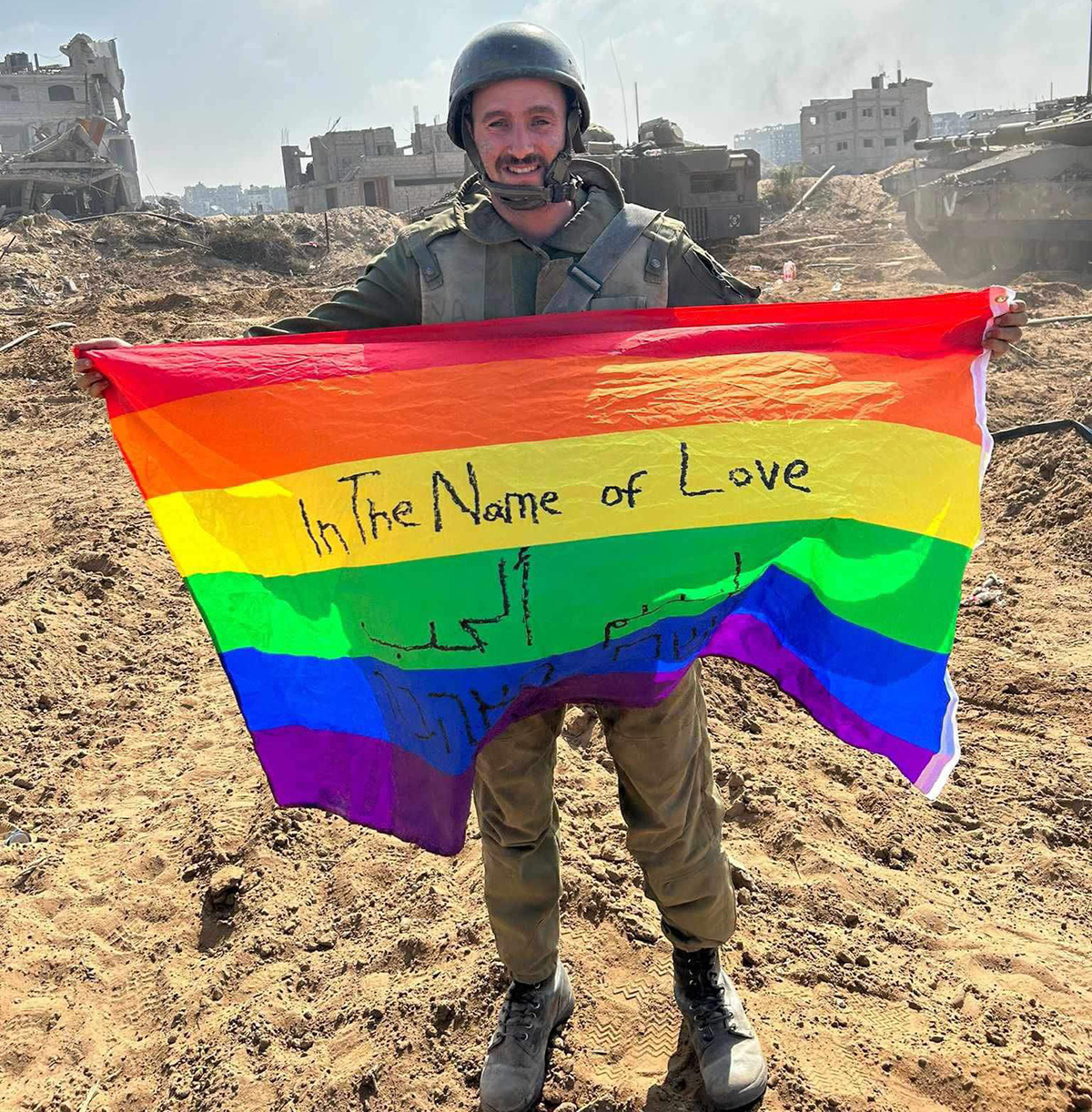
For all of these reasons, CGE issued our statement calling for a ceasefire in late October. Most of our organizational members were very pleased with its release, except for the ADL, which chose to end its membership in CGE over our differences on this issue. Human Rights Watch and Amnesty International, both long-standing CGE members, have strongly criticized this war, documenting war crimes and other human rights violations, both by the Israeli state against Palestinian civilians and by Hamas against Israeli citizens. But other than those large human rights organizations, the most vocal members of the foreign policy community in Washington have been the large humanitarian assistance providers, which have passionately argued for a ceasefire. The visible resistance by Jewish Voice for Peace and other progressive Jewish organizations, together with Palestinian rights organizations, have been the primary other civil society entities articulating a different vision for U.S. policy on Israel and Palestine. Between the street protests, potentially losing the next generation’s vote, and the upset from federal employees themselves, this does seem to be getting the Biden-Harris administration’s attention, forcing very small shifts toward using its leverage to reign in Israel’s military violence.
Where is the US foreign policy community?
So, where is the rest of the Washington foreign policy community? Clearly, others must have similar concerns for their credibility with partners around the world during this crisis and feel uneasy every day as the news appears. How can we not do better than this to hold our government accountable to our values of equality and justice? Where are the media watchdog organizations and why are they not challenging such asymmetrical coverage of the war? I understand that people are scared to “take a side,” to offend someone, to lose big donors and to lose legitimacy in the eyes of our U.S. government allies. God forbid we get canceled by saying the wrong thing or making a mistake.
But we must do better than that; we must have the courage to advocate for a more balanced U.S. policy on Israel and Palestine and to call on the Biden administration to be a more honest broker in the conflict. If foreign policymakers believe that the United States needs to be Israel’s best friend, to be a trusted nation they will listen to, then we certainly have paid our dues by now. We must leverage decades of expensive investments more strategically and effectively.
It is time for the progressive foreign policy community in the United States, together with principled Jewish organizations, Palestinian leaders and others sincerely invested in peace to come together to articulate a better way forward for U.S. foreign policy. We must demand conditions on U.S. aid, not just on ending illegal settlement building in the West Bank, but on actually dismantling settlements if the U.S.-stated policy goal of helping to create a Palestinian state is sincere. We must condition military aid appropriately to avoid its use in war crimes. We must demand and help secure the release of Palestinian leaders in Israeli prisons who could become the more legitimate, moderate leaders of the next iteration of the Palestinian Authority. This would undermine the Hamas movement far more effectively than the current military campaign is doing by offering better leadership options. We must demand the release of the Israeli hostages in Gaza and the Palestinian political prisoners in Israel. And we must end the immense blank check support of billions of taxpayer dollars to Israel by requiring a genuine restart of peace negotiations. These are just some of the policies that we should be advocating for – the point is that we need to have those debates as a matter of urgency within our own foreign policy communities in Washington.
As an LGBTQI+ U.S. foreign policy organization, we should be a part of those discussions, not just because queer Palestinians and queer Israelis are impacted, and not just because it’s urgently critical for the safety of all Palestinians and Israelis, but because, indeed, we are all impacted. Americans will be safer. Jews will be safer. Democracy might even be safer.
Julie Dorf is the co-chair of the Council for Global Equality.
Commentary
World ‘isn’t much different today’
The Nazis murdered nearly 1 million Jewish people at Auschwitz

OŚWIȨCIM, Poland — Łukasz, a Polish man who was our group’s English-speaking tour guide at Auschwitz, on April 7 asked us while we were standing outside one of Auschwitz I’s barracks why the Nazis systematically murdered more than 6 million Jewish people.
“Once they are gone, Germany will be great again,” he said, referring to the Nazis’s depraved justification.
There were other Americans in our group of about 40 people. I would like to think they are familiar with the dehumanizing MAGA rhetoric to which our country has become accustomed since President Joe Biden’s predecessor announced his White House bid in 2015. The fact that I was at a Nazi concentration camp was simply overwhelming, and I didn’t feel like speaking with them or to anyone else at that moment.
The unspeakable horrors that happened at Auschwitz are on full display. Łukasz’s comment was a stark warning to us all amid the backdrop of the current socio-political realities in which we in the U.S., Europe and elsewhere around the world currently live.
• Suitcases, glasses, shoes, kitchen utensils, prosthetic limbs, baskets, Jewish prayer shawls, and toothbrushes that were taken from people upon their arrival at Auschwitz were on display in Auschwitz I’s Block 5. One exhibit also contains children’s clothes.
• Auschwitz I’s Blocks 6 and 7 had pictures of male and female prisoners along the corridors. They contained their birthdays, the day they arrived at the camp and when they died. Block 7 also had mattresses and bunk beds on which prisoners slept and the sinks and latrines they used.
• The basement of Auschwitz I’s Block 11 had cells in which prisoners were placed in the dark and starved to death. The basement also had cells in which prisoners were forced to stand for long periods of time. Executions took place at the “Death Wall” in the courtyard between Block 10 and 11. Guards also tortured prisoners in this area.
• Medical experiments took place in Block 10.
• A gas chamber is located near Auschwitz I’s entrance with the gate that reads “Arbeit macht frei” or “Work sets you free.” The adjacent crematorium contains a replica of the furnaces used to burn human bodies.
• An urn with human ashes is in Auschwitz I’s Block 4. Hair cut from people who were killed in the gas chamber was also there.

Auschwitz I, a former Polish army barracks, is one of 40 camps and subcamps around Oświęcim, a town that is roughly 30 miles west of Kraków, Poland’s second-largest city, that became known to the world as Auschwitz. Upwards of 90 percent of the 1.1 million people killed at Auschwitz died at Auschwitz II-Birkenau, which is roughly 1 1/2 miles northwest of Auschwitz I in the village of Brzezinka (Birkenau in German), and more than 90 percent of those murdered upon their arrival were Jewish.
The ruins of two crematoria the Nazis blew up before the Soviets liberated the camp in January 1945 are there. (A group of Israelis were praying in front of them while our group was there.) A train car used to bring people to the camp was also there, along with some of the barracks in which those who were not immediately killed in the gas chambers lived.
Auschwitz II-Birkenau’s sheer size is incomprehensible.

The Nazis killed 6 million Jewish people in the Holocaust. They also murdered gay men, Poles, Roma, Sinti and millions of other people from across Europe.
The day I visited Auschwitz marked six months since Hamas launched its surprise attack against Israel.
More than 1,400 people — including 260 people who Hamas militants murdered at the Nova music festival in Re’im, a kibbutz that is a few miles from the Gaza Strip — have died in Israel since Oct. 7, 2023. The subsequent war has left more than 30,000 Palestinians in the Hamas-controlled enclave dead, and millions more struggling to survive. Oct. 7 was the deadliest attack against Jewish people since the Holocaust. That unfortunate coincidence of dates — Oct. 7 and April 7 — was not lost on me while I was at Auschwitz.
Another striking thing is the area in which the camps are located.
The train from Kraków to Oświęcim passes through idyllic countryside with green meadows, flowering trees and freshly tilled fields. Purple lilacs — like those that bloom each spring on the trees in my mother’s backyard in New Hampshire — were in full bloom inside Auschwitz I. Grass and dandelions were growing amid the remains of Auschwitz II-Birkenau’s barracks. Birds were chirping. The weather was also unseasonably warm with temperatures well over 80 degrees and a cloudless sky.
All of it was beyond surreal.
I visited Auschwitz while on assignment for the Washington Blade in Poland. I interviewed gay Deputy Polish Justice Minister Krzysztof Śmiszek in Warsaw and sat down with activists in the Polish capital and Kraków to talk about the country’s new government and the continued plight of LGBTQ refugees from Ukraine and other countries. My trip began in Budapest, Hungary, and ended in Berlin. I did not write this piece until I on my flight back to D.C. on Tuesday because I could not properly articulate my thoughts about what I saw at Auschwitz.

Governments, politicians, political candidates, and parties in the U.S. and around the world have used specific groups of people to advance a particular agenda, to blame them for what is wrong in their particular country and/or to deflect blame from their own failures. The Nazis and what they did to Jewish people and anyone else they deemed inferior is the most grotesque example of what can happen if such actions are not stopped.
Łukasz told us outside of one of the Auschwitz II-Birkenau barracks at the end of our tour that the world “isn’t that much different today.” He also said that we are “witnesses.”
“It’s up to you how you react to it,” said Łukasz.
Let’s hope we all do our part to make sure the atrocities that happened at Auschwitz never happen again.
Commentary
Preserving our tapestry: Navigating European elections, empowering queer women and the imperative of safe spaces
EU elections will take place in June 9

As the European Union anticipates the upcoming elections in June, a disconcerting wave of transphobic rhetoric has swept across the continent, notably in 21 EU member states, according to a recent report by ILGA-Europe. The 13th Annual Review of the Human Rights Situation of LGBTQ People in Europe and Central Asia stresses the alarming rise in hate speech targeting the LGBTQ and intersex community. This growth in negativity — which particularly is directed at transgender people — raises profound concerns about the state of inclusivity, human rights and democracy within the EU.
The alarming surge of transphobia in European politics
According to the report, there is a trend of hate speech coming from politicians across 32 European countries of which 21 being EU member states. Painting a stark picture of the challenges faced by the LGBTQ community. In a staggering list that includes Austria, Germany, Spain and others, politicians have increasingly weaponized anti-trans rhetoric. Exploiting children is a tactic often used as part of scare strategies to create opposition to trans minors’ access to healthcare and educational facilities, extending this divisive approach to a broader trend where politicians argue that restricting information about LGBTQ people is a necessity to protect minors.

The rise in transphobic rhetoric is not only confined to politics but it has other tangible consequences. The report highlights a concerning escalation in suicide rates and mental health issues, particularly in LGBTQ youth. Violent protests outside schools and libraries have created unsafe environments, adding to the growing list of challenges faced by the community.
The far-reaching impact of demonization by politicians and the introduction of restrictive legislation underscores the need for urgent action. Hate speech is not merely an affront to people’s rights, it is an assault on the very core values upon which the EU was founded. As ILGA-Europe Advocacy Director Katrin Hugendubel notes, human rights, especially those of LGBTQ people, are facing a significant challenge from far-right forces. The exploitation of LGBTQ rights to undermine democracy, human rights and the rule of law highlights the divisive nature of the current political landscape.
As ILGA-Europe prepares to launch the “Come Out 4 Europe” campaign in response to these alarming trends, the need for visible and supportive queer female spaces is more apparent than ever. The campaign, seeking commitments from European Parliament candidates to protect the rights of LGBTQ people, underscores the urgency of safeguarding human rights, democracy and freedom.
The crucial role of queer women in European elections
Belgium, amid this backdrop of rising transphobia, is preparing for the European elections on June 9, 2024. The importance of this electoral process cannot be overstated, especially for queer women. With citizens aged 16 and above casting their votes to elect 22 members of the European Parliament (MEPs), it’s a pivotal moment for the LGBTQ community.
The voting process in Belgium follows EU law, utilizing a proportional representation system. Voters choose one party, either by marking the box above the party list or selecting individual candidates on the list. The total ballot forms for each party determine seat distribution, and preferential votes then decide which candidates secure a seat in the European Parliament.
Educated voting in the European elections is essential to queer women and the importance cannot be stressed enough. Throughout history they have faced unique battles, but this community holds the power to shape policies that directly influence their lives. By engaging in the democratic process, queer women can actively challenge the current surge in hate speech towards trans people by voting for electing representatives who actively advocate for LGBTQ rights.
Representation is more than a mere buzzword. It matters. Understanding candidates’ positions on LGBTQ issues is key and requires educating oneself on candidates’ stances as to allow queer women to vote for representatives who genuinely champion LGBTQ rights. A diverse and inclusive representation ensures that the concerns and voices of the queer community are not just heard but which are acted upon. Decisions within the European Parliament influence policies ranging from anti-discrimination laws to access to healthcare. An informed vote makes sure that legislation promotes equality, acceptance and the protection of LGBTQ rights.
By being educated on the European elections and its candidates, queer women embark on a journey of self-empowerment. By supporting candidates who prioritize inclusive curricula, they contribute to addressing LGBTQ history, health and rights, encouraging a more accepting future.
The undeniable need for physical queer women spaces
Since the European elections are nearing, the importance of physical spaces for queer women to gather and discuss voting and the candidates becomes increasingly evident. While online spaces offer the chance to connect and discuss, they come with their own unique challenges, including the spread of misinformation and miscommunication. In navigating the democratic landscape, the value of in-person gatherings for education and discussion cannot be stressed enough.
The world is saturated with digital information, and misinformation can easily infiltrate online spaces. Physical gatherings allow for a more controlled environment with direct feedback from peers, where queer women can share accurate and reliable information, ensuring a more nuanced understanding of candidates, policies and the electoral process.
In the lead-up to the European elections, we have to recognize that physical spaces for queer women are crucial. They do not only combat misinformation, disinformation and miscommunication but also serve as a vital space for shared learning. In-person gatherings create the foundation for an informed and engaged electorate, promoting a collective voice that resonates in the democratic process. The power of change lies not just in our votes but in the shared wisdom and unity forged in the physical spaces we create together.
The plight of the Crazy Circle and the call for investment in queer women spaces
After the closing of Brussels’ iconic Crazy Circle, a feminist queer space that has served as a safe haven for the LGBTQ community, it becomes increasingly evident that the struggle for queer women-only spaces in Belgium is a critical issue demanding our attention.
For the past five years, Crazy Circle has been a testament to the resilience of the LGBTQ community, creating a safe and celebratory space for queer women and their allies. However, its closure after the previous management leaving for unknown reasons and current fundraising attempt by the new owners to reopen highlight the challenges faced by such spaces in Belgium. These establishments play a vital role not only as social hubs but as catalysts for education, empowerment and advocacy. Fortunately for the new owners they recently reached their fundraising goals and raised over 50,000 euros to reopen Crazy Circle.
The loss of a space like this underscores the broader struggle faced by queer women-only spaces in Belgium. Beyond being social hubs, these spaces are vital agents of change, providing a haven for education, empowerment and advocacy. We must recognize that our commitment to the LGBTQ community extends beyond words.
The “Come Out 4 Europe” campaign by ILGA-Europe serves as a proactive response to the alarming trends in hate speech. It calls for clear political commitments on safeguarding human rights, democracy and freedom from candidates in the upcoming European Parliament elections in June. Belgium, with its own elections on the horizon, stands at a crossroads where the choices made will resonate far beyond its borders.
If we want to inform queer females about campaigns like “Come Out 4 Europe” we need spaces like the Crazy Circle. Its closure is a stark reminder of the fragility of these vital spaces. It’s a call to action, urging us to invest more in preserving and expanding queer women-only spaces. The struggle faced by Crazy Circle is not an isolated incident; it reflects a broader challenge that demands a collective response all over the world.
By fighting to preserve and expand queer women-only spaces, we are not merely safeguarding physical venues. We are investing in the education, empowerment and advocacy of the LGBTQ community. These spaces are not mere bars or gathering spots; they are crucial agents of change and empowerment.
Building a future of inclusivity
As we see what happened to Crazy Circle in Belgium, let us use this moment as a catalyst for change. It is time to rally together behind existing queer women spaces, ensuring their survival and actively working towards expanding and creating new ones. By doing so we empower individuals to educate, advocate, and, most importantly, vote for a future where safety, equality and acceptance prevail for all members of the LGBTQ community. It’s not only a matter of choice to preserve these spaces; it is a commitment to a world where everyone has the right to be safe, heard and celebrated.
In navigating the complex tapestry of the European elections, the empowerment of queer women spaces through informed voting and the preservation of physical queer women spaces become integral threads. As we stand on the precipice of change, our choices today will shape the inclusive and accepting future we envision. Together, let us weave a tapestry that celebrates diversity, protects human rights and builds a future where every voice, especially those of queer women, is not just heard but cherished.
Commentary
Returning to the kibbutz: A journey of heartbreak and hope
Hamas militants attacked Kfar Aza on Oct. 7
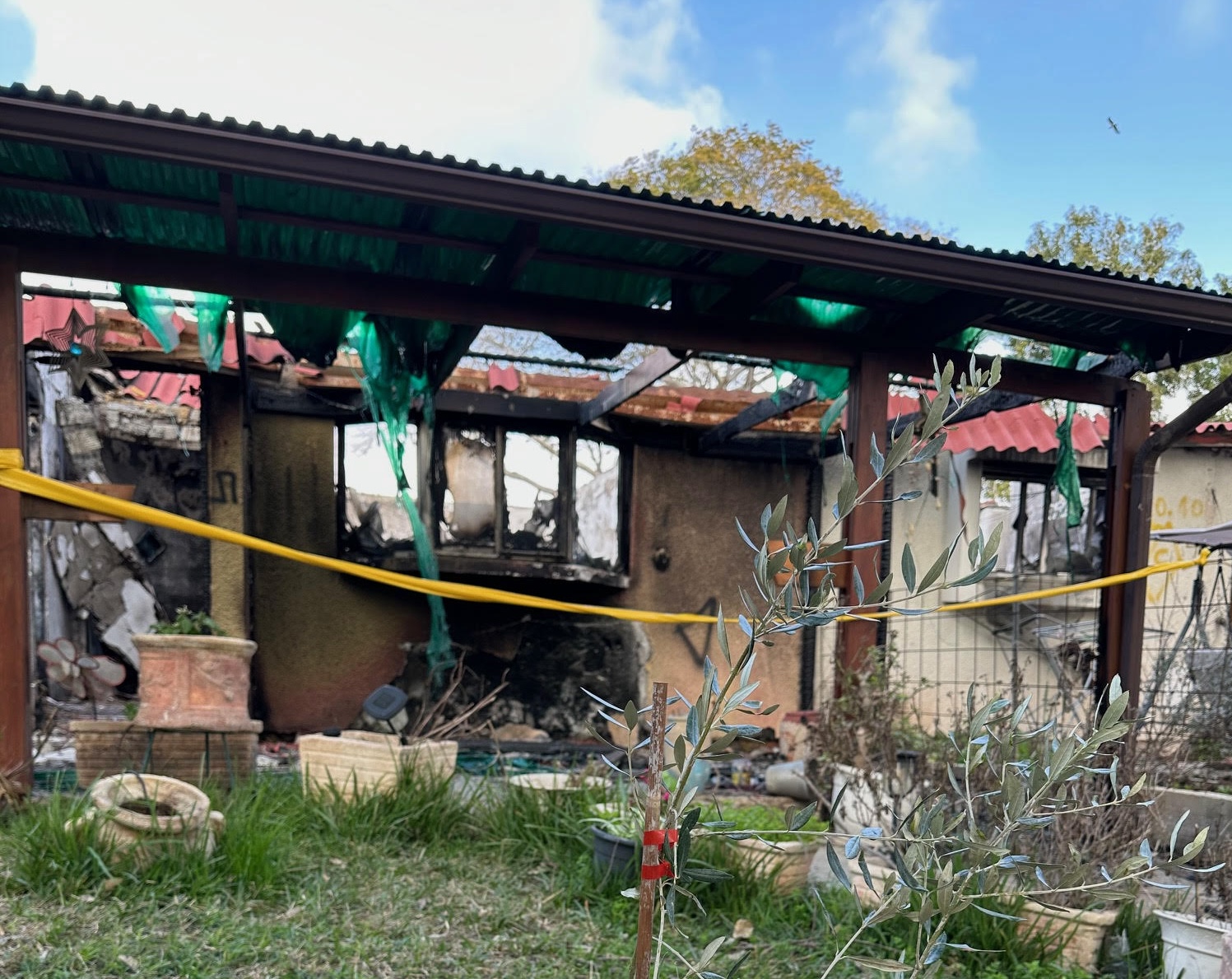
BY K.T. COLIN | In 2019, my first encounter with Israel was through the lens of a sponsored Birthright trip. I embarked on a three-week journey, traversing the diverse landscapes from the northern regions to the eastern territories and finally to the arid southern desert. I had the opportunity to visit different communities within Israel and Palestine. Amidst this exploration, I spent an unforgettable three days and two nights in a kibbutz situated near the Gaza border. The memories etched in my heart were ones of unbridled joy, resilience and the harmonious coexistence of the desert dwellers — an emotional tapestry that forever imprinted itself on my soul. Coming from an Iraqi heritage, I viewed these expressions of coexistence through a lens shaped by my own region’s history of conflict and diversity.
As I recall the Shabbat dinner at the kibbutz, the air resonated with the sacred call to prayers (Adhan) from a nearby Bedouin Arab-Muslim town. The juxtaposition of cultures and faiths was a poignant reminder of the shared humanity that bound the Jewish and Arab Israelis in this region. It was a journey that transcended the ordinary, leaving an indelible mark on my consciousness. Filled with memories of peace and unity, I returned, only to confront a reality far removed from my cherished memories.
Fast forward to last month, when I returned to the Negev Desert, specifically to Kfar Aza — one of the 22 kibbutzim targeted by Hamas on that fateful day, Oct. 7, 2023. The once vibrant oasis, brimming with the light of life, now stood shrouded in the darkness of war-induced death and destruction. The very bench where camaraderie blossomed in 2019, while sharing a moment of connection with an Israeli companion, lay reduced to ashes. The thriving pathways, once bustling with life, had metamorphosed into haunting reminders of blood and rubble. The faces that animated Shabbat gatherings, weaving tales of peace advocacy between Palestinians and Israelis, were now conspicuously absent. In the wake of Hamas’s brutality, no entity — be it human, animal or plant — escaped unscathed. The aftermath resembled scenes from an apocalyptic movie, a tableau of sensory deprivation dominated by the stench of death and the echoes of destruction. This destruction, while uniquely harrowing, echoed the all-too-familiar scenes of conflict from my childhood in Iraq, underscoring the universal tragedy of war.
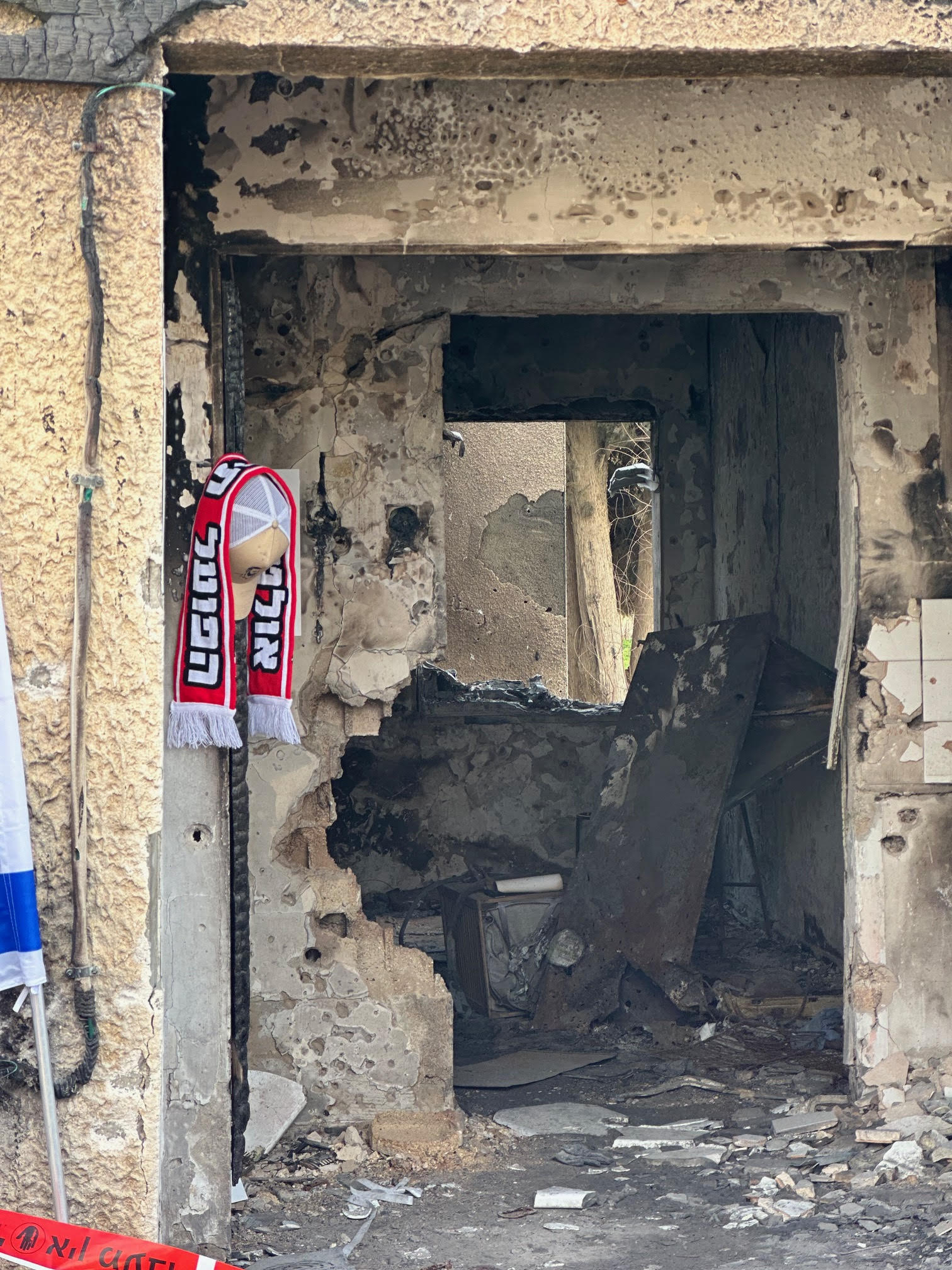
While my roots trace back to Iraq, a land marred by wars and the brutality of conflict, the devastation witnessed in Kfar Aza struck a chord that reverberated with the echoes of my past. My personal journey, from witnessing Saddam’s reign of terror to observing the aftermath in Kfar Aza, underscores a broader narrative of resilience and the enduring hope for peace. Born during the Iraqi-Iranian war, my father’s absence for the first six months of my life spoke volumes about the toll of conflict. The invasion of Kuwait and subsequent wars entrenched the narrative of war as an unwelcome companion in our daily lives. Memories of the U.S. invasion in 2003, the ensuing civil war, and the subsequent loss of rights for women, secular individuals and LGBTQ+ members further underscored the harsh reality of conflict.
Yet, Kfar Aza was a unique chapter in my journey, revealing a form of malevolence that transcended my prior experiences. In their assault, Hamas meticulously targeted specifically peace activists who wanted nothing but peace and prosperity between Israelis and Palestinians, sparing no atrocity in their pursuit. This was not just about taking lives; it was a heinous assault on the very prospect of peace. The evil that unfolded reminded me of the forces mentioned in the Quran — Yaajooj and Maajooj — entities of pure malevolence against whom even Alexander the Great erected a wall, according to Muslim prophecy.
My upbringing in Iraq, under the shadow of Saddam Hussein’s dictatorship, fanned the flames of anti-Semitism. A once diverse Iraq, home to 165,000 Iraqi Jews, witnessed their forced exodus through decades of genocide. Subsequently, Christians, Yazidis and Sabbea Mandaeen fell victim to ethnic cleansing orchestrated by dictatorial regimes, Nazi pogroms, Iranian militias and ISIS. The slow erosion of tolerance and coexistence occurred methodically, propelled by hate campaigns championed by Arab nationalists and later fueled by Islamist movements, plunging Iraq into its darkest era.
My school days were marked by compulsory flag-greeting ceremonies, ostensibly patriotic but laden with hate. The chants of “Death to America; Death to the Zionists; Death to the Jews” echoed through the air, fostering a culture of animosity. Arabization and Nationalism classes further fueled this bigotry, leaving an indelible mark on impressionable minds.
The recent horrors in Kfar Aza echoed memories of a similar brand of terror perpetrated by Saddam’s regime — the Fedaeen of Saddam, a precursor to Hamas’s brutality. The parallels were chilling — beheadings, brutal punishments and a reign of terror continued even after the fall of Saddam, as they joined Al-Qaeda, leaving a trail of atrocities in cities like Fallujah and Ramadi.
As I witnessed the devastation in Kfar Aza, the echoes of war in nearby Beit Hanoun, Gaza, resonated hauntingly. The pain echoed from both sides — the Israeli people enduring Hamas rockets since 2015 and the Palestinians suffering daily under the same regime. My heart shattered for the children left orphaned, the LGBTQ+ Gazans now without shelter or life-saving medications and the vulnerable girls and boys exposed to the horrors of Human trafficking and rape. The theft of humanitarian aid by Hamas left many without food and water, and the lip services to Palestinians by Arab and Muslim majority nations, painting a grim picture of a future hanging in uncertainty for those who survived.
Despite the deep scars of conflict, both in my homeland and here, I see glimmers of hope that guide us toward a shared future. I have endured the darkest chapters of conflict in my past, and I hold onto the belief that one day this war will end. I dream of a future where Israelis and Palestinians coexist in shared spaces, attending the same schools, dining at the same restaurants and dancing in the same nightclubs. Having witnessed such unity among Jews, Druze, Muslims and Christians in Israel, I pray for a day when this reality extends to Gazans and Israelis in the Negev Desert. The journey towards peace is arduous, but the human spirit, resilient and compassionate, holds the promise of a brighter tomorrow.
-

 State Department4 days ago
State Department4 days agoState Department releases annual human rights report
-

 South America2 days ago
South America2 days agoArgentina government dismisses transgender public sector employees
-

 District of Columbia2 days ago
District of Columbia2 days agoCatching up with the asexuals and aromantics of D.C.
-

 Politics4 days ago
Politics4 days agoSmithsonian staff concerned about future of LGBTQ programming amid GOP scrutiny



